Confederated Tribes of Grand Ronde prepare to open public health building to expand care
The Confederated Tribes of Grand Ronde will open a new public health building Friday in Grand Ronde to provide medical and dental care, vaccinations, health education and cultural services to members of the community.
The idea for the building was born from challenges during the pandemic, trying to provide continuing health care services while meeting the demand for COVID-19 testing and vaccinations.
A priority in designing the building was ensuring space for a culturally informed health and wellness program. Wellness education will be held in the large community room, and videos on nutrition will be created to reach tribal members where ever they live.
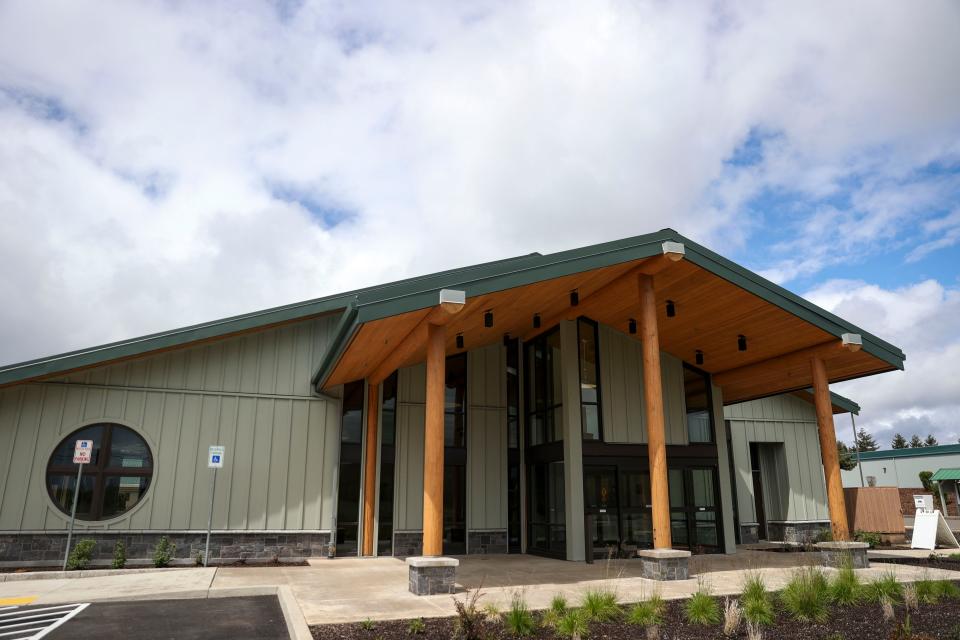
The building has six examination rooms, two dental rooms, a dental lab and a community room. The staff will collaborate with the existing health and wellness clinic next door to expand services and best meet the public health needs of the community.
A fish pit, used to traditionally prepare salmon and other fish, is outside.
“It’s not just a focus on western medicine, but really how nutritional health or cultural practice can help heal people as well,” said Ryan Webb, engineering and planning manager for the Confederated Tribes of Grand Ronde.
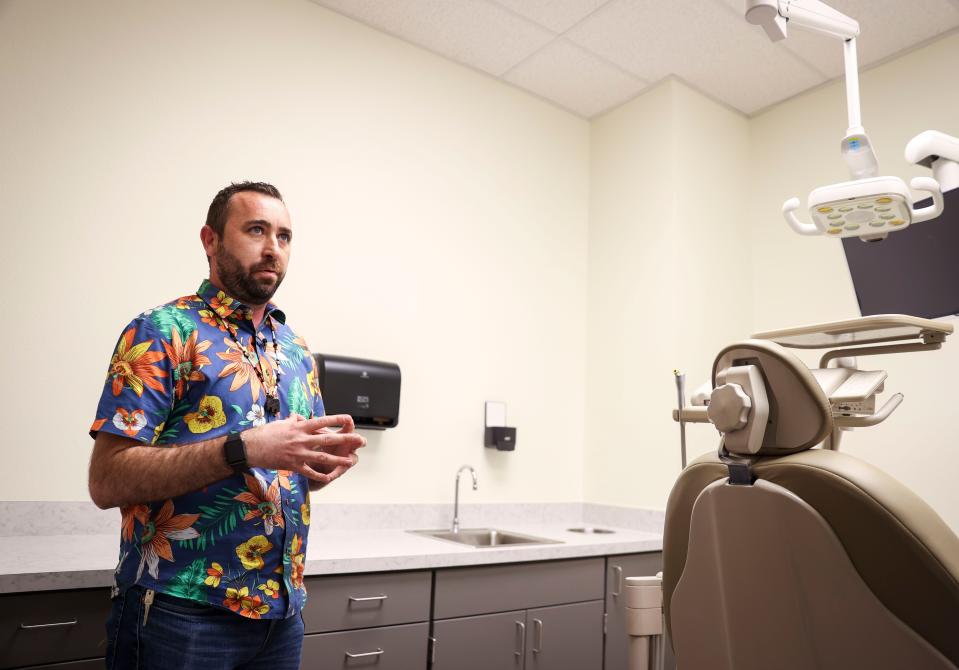
Bringing cultural practices to health education
The community room has a kitchen that will be used to demonstrate healthy meal preparation, using both traditional and modern practices with first foods, part of a tribe’s original diet. Their ancestors hunted and gathered these first foods for generations, giving them cultural significance.
“Not only are they nourishing our bodies, but they're also something that kind of speaks to us. It's tradition,” said Kelly Rowe, executive director of health services for the Confederated Tribes of Grand Ronde.
Salmon is one of the first foods that will be prepared during cooking demonstrations and outside in the fish pit.
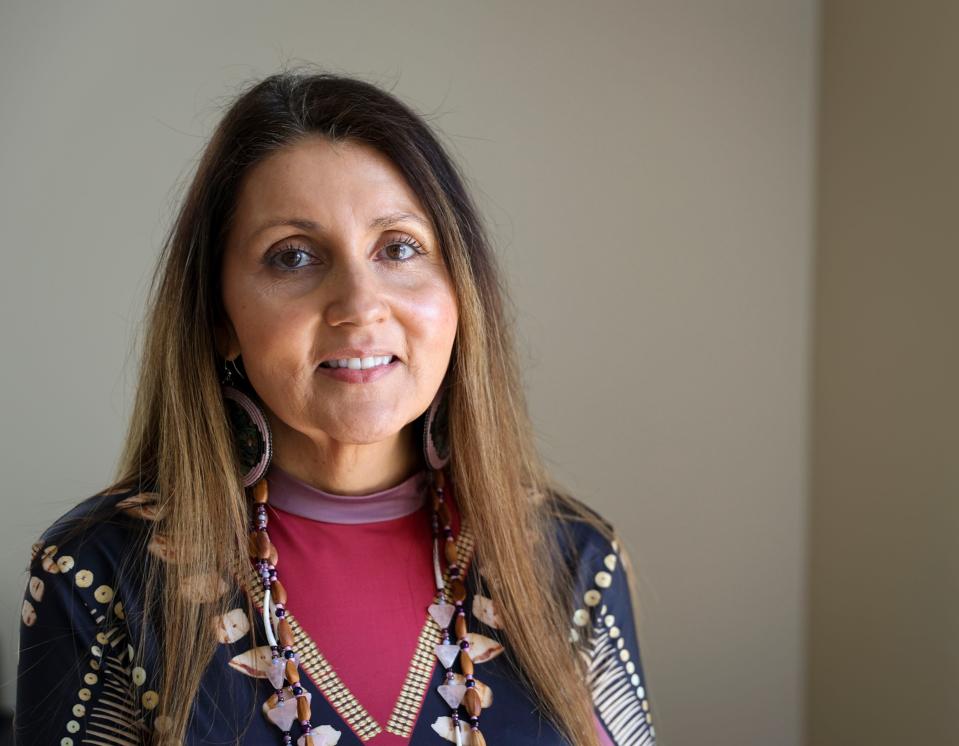
Rowe said there also will be social gatherings at the fish pit to cook, play traditional music and just be in community.
Rowe said one of the most impactful ways to help the community is by prioritizing nutrition and wellness. Embedding culture into health education makes it even more special, so the traditions can be carried forward for generations, she said.
“We want to make sure we bring it, we teach it and we continue it,” Rowe said.
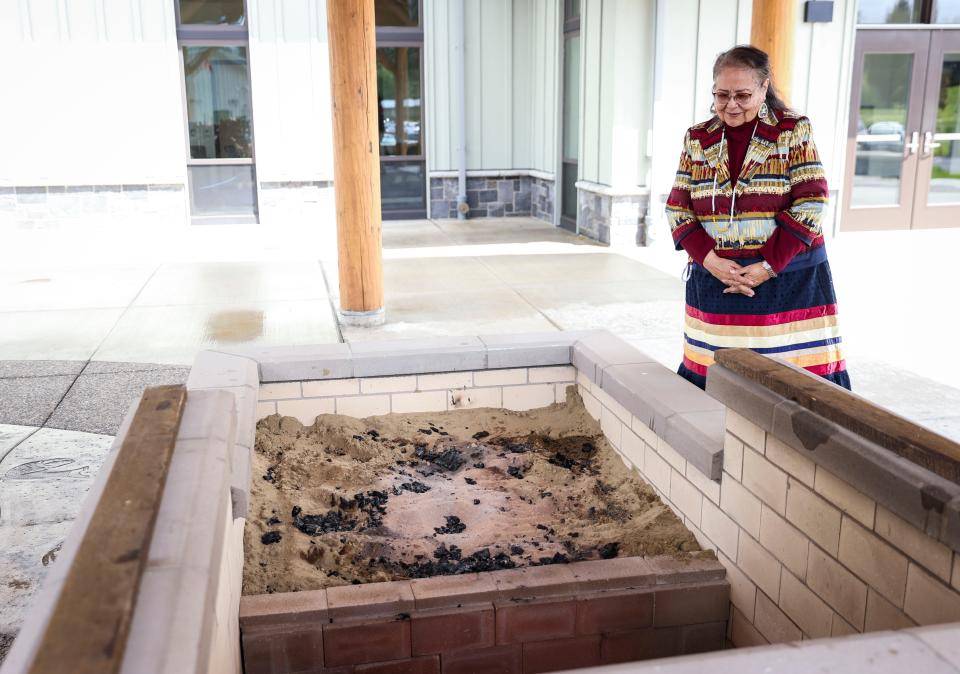
Prioritizing energy efficiency
Through a partnership with Energy Trust Oregon, an independent nonprofit that serves Oregon and southwest Washington, the building was designed to incorporate energy efficiency with power saving features such as solar panels and large windows, sun tunnels and skylights to let in natural light.
The building has about 70 solar panels that produce 147.5 kilowatts of energy that is expected to save more than $6,000 a year in utility bills, Webb said.
“It really shows you what the tribe's focus is when it comes to providing new buildings for the community,” he said. “It is not just the building, but it's looking at what the environmental and energy footprint is and making sure that when we're expanding, we're also trying to minimize that as much as possible.”
As the tribal community grows, they have tried to be conscious about keeping their environmental and energy footprints as small as possible, Webb said.
“The tribe is very committed to really being stewards of the land that they always have been,” he said.
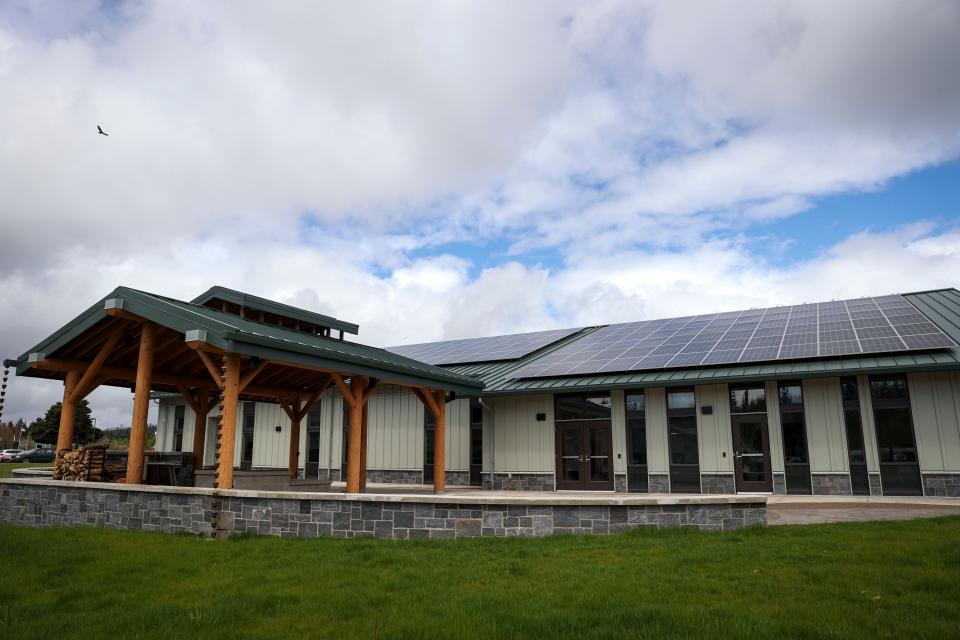
Sydney Wyatt covers healthcare inequities in the Mid-Willamette Valley for the Statesman Journal. Send comments, questions, and tips to her at SWyatt@gannett.com or (503) 399-6613
The Statesman Journal’s coverage of healthcare inequities is funded in part by the M.J. Murdock Charitable Trust, which seeks to strengthen the cultural, social, educational, and spiritual base of the Pacific Northwest through capacity-building investments in the nonprofit sector.
This article originally appeared on Salem Statesman Journal: Confederated Tribes of Grand Ronde public health building

